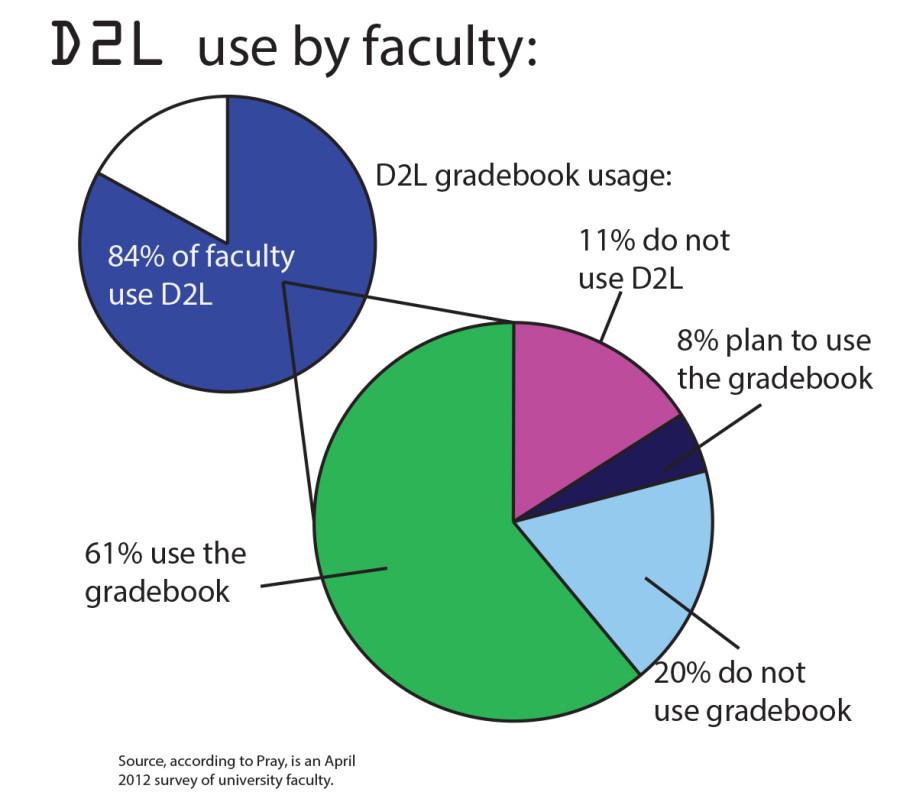
For students, Desire2Learn, like eMarq and Checkmarq, is one of the most regularly-used websites. As a resource many professors utilize to announce class assignments and information on grades, students use the website several times in a given week.
There are some professors who choose not to use the online grade book, or even the site. This can disadvantage students in classes where the grading rubric is unclear and the only updates they get about their progress are posted on Checkmarq after midterms and finals. While there are other ways for students to get this information, like meeting with professors during their office hours, posting grades in a clearly-designated space online helps avoid confusion on what is expected and how the semester is set up by instructors. The grade book also gives professors a centralized place for information, simplifying how grades can be reviewed.
Marquette University Student Government proposed legislation last February to expand the use of the D2L grade book among professors so a clear standard could be upheld among faculty and expected by the student body. Legislation or not, it is in the best interest of professors and students for grades to be posted on the easy-to-use site for consistency in grading throughout the university.
Every year faculty members receive training to become acquainted with the D2L software and learn how to use it to their advantage throughout the term. If this is required of them, it cannot hurt to be acclimated with the grade book and find out how this can simplify their course and improve interaction with students. Knowing that students have access to grades before midterms and finals can take the confusion out of the student/teacher relationship and ensure that both parties are accountable for their roles in the course.
This works for both faculty and students. The D2L grade book can be an additional tool for students as they work through classes and try to stay on top of their assignments. Students with precise knowledge of their performance in the class are able to alter their actions in class so as to improve if necessary. If they want to do well in the course, they can know their grades and keep themselves in check if they need to improve. Students can also track any discrepancies through D2L.
A misconception professors may have about the grade book is that it enables students to avoid talking to professors about their progress and reduces the class to numbers that hopefully add up to an A. In practice, the grade book is just the starting point for students and professors to discuss grades and work together through the course. The grade book does not stop students from talking to professors about grades but instead provides a platform where both parties know what is expected and can keep track throughout the semester. This will lead to better conversations about classes and more productive and enriching classroom experiences.
Whether or not MUSG legislation regarding the use of the D2L grade book should pass this year, professors and students should take advantage of this resource so that they may interact well with no surprises come finals week. Both students and instructors are interested in engagement and the disclosure of important grades via D2L throughout the semester would facilitate this interaction.










